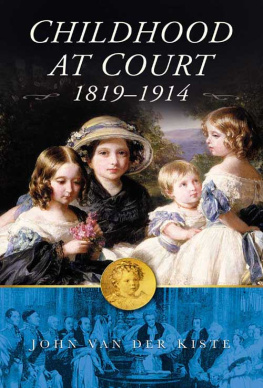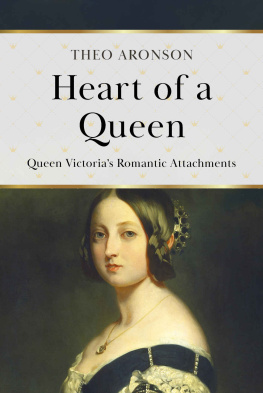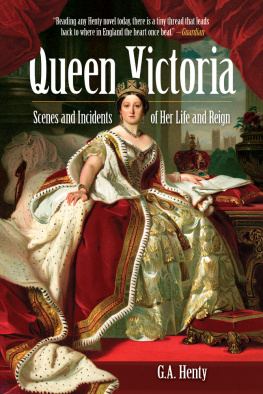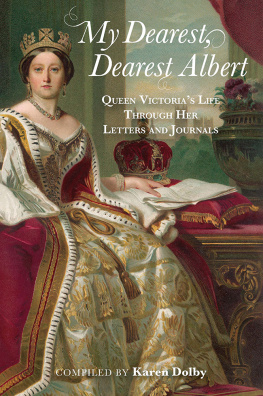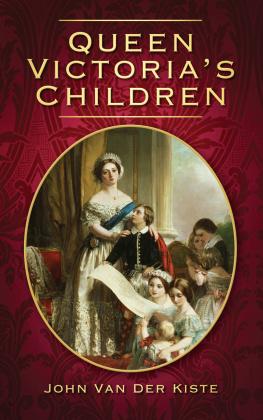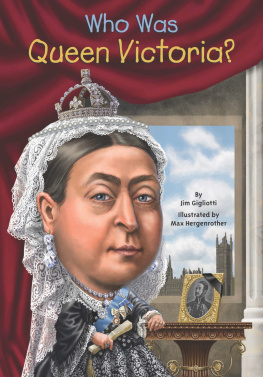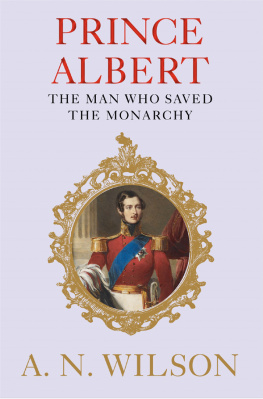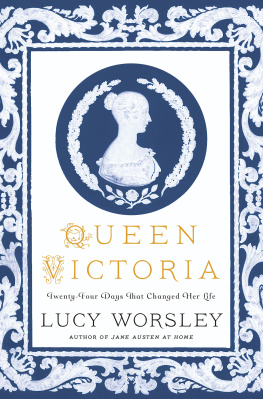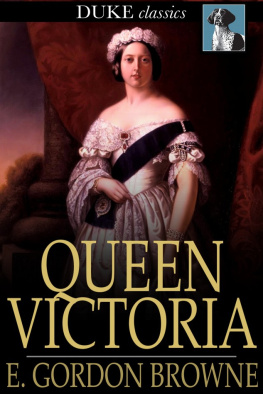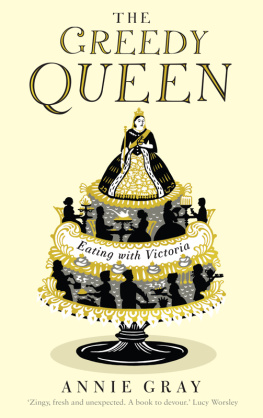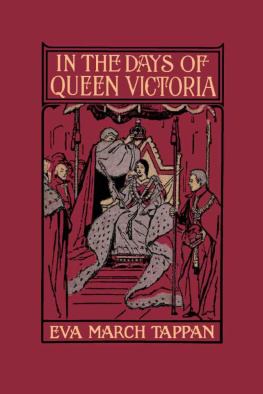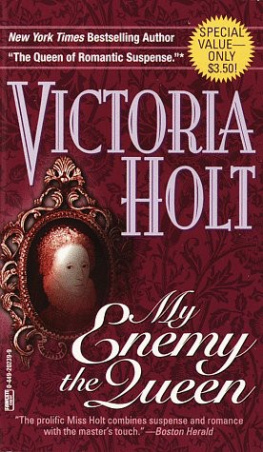HIS MAJESTY THE KING
EDITED BY ARTHUR CHRISTOPHER BENSON, M.A.
AND VISCOUNT ESHER, G.C.V.O., K.C.B.
IN THREE VOLUMES
VOL. I.1837-1843
LONDON
JOHN MURRAY, ALBEMARLE STREET, W.
1908
Copyright in Great Britain and Dependencies, 1907, by H.M. The King .
In the United States by Messrs Longmans, Green & Co.
All rights reserved.
PREFACE
Entrusted by His Majesty the King with the duty of making a selection from Queen Victoria's correspondence, we think it well to describe briefly the nature of the documents which we have been privileged to examine, as well as to indicate the principles which have guided us throughout. It has been a task of no ordinary difficulty. Her Majesty Queen Victoria dealt with her papers, from the first, in a most methodical manner; she formed the habit in early days of preserving her private letters, and after her accession to the Throne all her official papers were similarly treated, and bound in volumes. The Prince Consort instituted an elaborate system of classification, annotating and even indexing many of the documents with his own hand. The result is that the collected papers form what is probably the most extraordinary series of State documents in the world. The papers which deal with the Queen's life up to the year 1861 have been bound in chronological order, and comprise between five and six hundred volumes. They consist, in great part, of letters from Ministers detailing the proceedings of Parliament, and of various political memoranda dealing with home, foreign, and colonial policy; among these are a few drafts of Her Majesty's replies. There are volumes concerned with the affairs of almost every European country; with the history of India, the British Army, the Civil List, the Royal Estates, and all the complicated machinery of the Monarchy and the Constitution. There are letters from monarchs and royal personages, and there is further a whole series of volumes dealing with matters in which the Prince Consort took a special interest. Some of them are arranged chronologically, some by subjects. Among the most interesting volumes are those containing the letters written by Her Majesty to her uncle Leopold, King of the Belgians, and his replies.1 The collection of letters from and to Lord Melbourne forms another hardly less interesting series. In many places Queen Victoria caused extracts, copied from her own private Diaries, dealing with important political events or describing momentous interviews, to be inserted in the volumes, with the evident intention of illustrating and completing the record.
Footnote 1: A set of volumes containing the Queen's letters to Lord John Russell came into our hands too late to be made use of for the present publication.
It became obvious at once that it was impossible to deal with these papers exhaustively. They would provide material for a historical series extending to several hundred volumes. Moreover, on the other hand, there are many gaps, as a great deal of the business of State was transacted by interviews of which no official record is preserved.
His Majesty the King having decided that no attempt should be made to publish these papers in extenso, it was necessary to determine upon some definite principle of selection. It became clear that the only satisfactory plan was to publish specimens of such documents as would serve to bring out the development of the Queen's character and disposition, and to give typical instances of her methods in dealing with political and social mattersto produce, in fact, a book for British citizens and British subjects, rather than a book for students of political history. That the inner working of the unwritten constitution of the country; that some of the unrealised checks and balances; that the delicate equipoise of the component parts of our executive machinery, should stand revealed, was inevitable. We have thought it best, throughout, to abstain from unnecessary comment and illustration. The period is so recent, and has been so often traversed by historians and biographers, that it appeared to us a waste of valuable space to attempt to reconstruct the history of the years from which this correspondence has been selected, especially as Sir Theodore Martin, under the auspices of the Queen herself, has dealt so minutely and exhaustively with the relations of the Queen's innermost circle to the political and social life of the time. It is tempting, of course, to add illustrative anecdotes from the abundant Biographies and Memoirs of the period; but our aim has been to infringe as little as possible upon the space available for the documents themselves, and to provide just sufficient comment to enable an ordinary reader, without special knowledge of the period, to follow the course of events, and to realise the circumstances under which the Queen's childhood was passed, the position of affairs at the time of her accession, and the personalities of those who had influenced her in early years, or by whom she was surrounded.
The development of the Queen's character is clearly indicated in the papers, and it possesses an extraordinary interest. We see one of highly vigorous and active temperament, of strong affections, and with a deep sense of responsibility, placed at an early age, and after a quiet girlhood, in a position the greatness of which it is impossible to exaggerate. We see her character expand and deepen, schooled by mighty experience into patience and sagacity and wisdom, and yet never losing a particle of the strength, the decision, and the devotion with which she had been originally endowed. Up to the year 1861 the Queen's career was one of unexampled prosperity. She was happy in her temperament, in her health, in her education, in her wedded life, in her children. She saw a great Empire grow through troubled times in liberty and power and greatness; yet this prosperity brought with it no shadow of complacency, because the Queen felt with an increasing depth the anxieties and responsibilities inseparable from her great position. Her happiness, instead of making her self-absorbed, only quickened her beneficence and her womanly desire that her subjects should be enabled to enjoy a similar happiness based upon the same simple virtues. Nothing comes out more strongly in these documents than the laborious patience with which the Queen kept herself informed of the minutest details of political and social movements both in her own and other countries.
It is a deeply inspiring spectacle to see one surrounded by every temptation which worldly greatness can present, living from day to day so simple, vivid, and laborious a life; and it is impossible to conceive a more fruitful example of duty and affection and energy, displayed on so august a scale, and in the midst of such magnificent surroundings. We would venture to believe that nothing could so deepen the personal devotion of the Empire to the memory of that great Queen who ruled it so wisely and so long, and its deeply-rooted attachment to the principle of constitutional monarchy, as the gracious act of His Majesty the King in allowing the inner side of that noble life and career to be more clearly revealed to a nation whose devotion to their ancient liberties is inseparably connected with their loyalty to the Throne.



